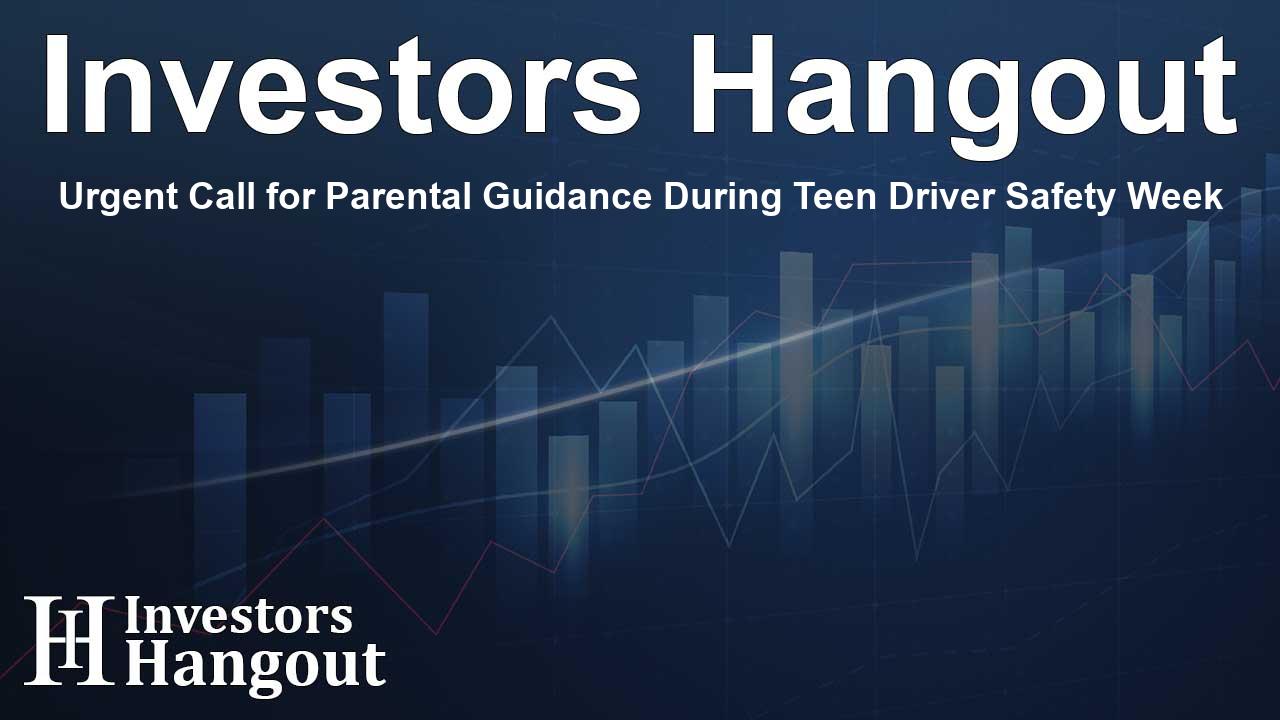Urgent Call for Parental Guidance During Teen Driver Safety Week

National Teen Driver Safety Week: A Call to Action
Car crashes remain the leading cause of preventable deaths among teenagers, highlighting a critical area of concern in road safety. The National Safety Council (NSC) emphasizes the urgent need for parents and caregivers to engage in conversations about safe driving habits. As we approach National Teen Driver Safety Week, these discussions can play a vital role in shaping the driving behavior of young individuals.
The Alarming Statistics of Teen Driving
The statistics regarding teen driving accidents are stark. In recent years, over 2,700 teenagers tragically lost their lives due to vehicle crashes. This reality makes it imperative for families and communities to address the situation proactively. The NSC is dedicated to protecting these young drivers and providing accessible resources for their guardians.
Free Resources for Parents and Caregivers
To support parents and caregivers, the NSC offers a variety of free resources through its DriveitHOME program, backed by General Motors. These resources are designed to help adults communicate effectively with teens about safe driving practices. NSC provides brochures, videos, and social media kits that share crucial safety information. By accessing these tools, families can educate themselves and their teenagers on the best practices for road safety.
Increased Fatalities Among Young Drivers
Crashes involving young drivers aged 15-20 accounted for a significant number of fatalities recently, showing a troubling trend that needs to be addressed. Interestingly, while young drivers make up only a fraction of those involved in driving-related deaths, they still represent a concerning 38% of the total fatality rate. This statistic emphasizes the necessity for focused educational initiatives aimed at not just young drivers, but also their families and communities.
The Role of Parents in Promoting Safe Driving
According to recent findings, although many parents feel confident in their ability to instruct their teenagers on safe driving, there remains a gap in their knowledge about effective driving practices. Approximately 82% of parents report feeling confident, but only 55% claim to be knowledgeable about best practices. This disconnect shows the need for supportive educational initiatives.
Building a Culture of Safety
The National Safety Council is committed to creating a culture of safety that extends beyond mere accidents. For over 110 years, the organization has aimed to eliminate preventable deaths and injuries across various aspects of life. This mission feeds into their initiatives, encouraging parents to be proactive in educating their children about driving. With effective conversations and the right resources, the fatality rate among teens can be significantly reduced.
Engagement in Community Efforts
Communities can also play a critical role in enhancing teen safety by supporting local driving initiatives and engaging in awareness campaigns during National Teen Driver Safety Week and beyond. Parents are encouraged to forge partnerships with local authorities and safety advocates to ensure a comprehensive approach to teenage driving education.
Conclusion: The Path Forward
As we enter National Teen Driver Safety Week, the focus on parental engagement is more important than ever. By fostering open lines of communication about safe driving and utilizing available educational resources, parents can help shape their teens' driving habits positively. The NSC remains dedicated to assisting parents in this crucial task, ensuring the safety of the next generation of drivers.
Frequently Asked Questions
Why is it important to educate teens about driving safety?
Educating teens about driving safety is crucial because it helps reduce preventable accidents and fatalities, ensuring that they develop safe driving habits early on.
What resources does the National Safety Council provide for parents?
The NSC offers free resources, including brochures, videos, and social media tips, aimed at helping parents educate their teens about safe driving practices.
How can parents influence their teen's driving habits?
Parents can influence their teen’s driving habits by having open discussions about safety, demonstrating safe driving behavior, and emphasizing the importance of responsible driving practices.
What is the goal of National Teen Driver Safety Week?
The goal of National Teen Driver Safety Week is to raise awareness about the dangers of distracted driving and to provide resources that encourage safe driving behaviors among teenagers.
How can communities support teen driving education?
Communities can support teen driving education by organizing awareness campaigns, collaborating with local authorities, and providing safe driving workshops for parents and teens.
About The Author
Contact Hannah Lewis privately here. Or send an email with ATTN: Hannah Lewis as the subject to contact@investorshangout.com.
About Investors Hangout
Investors Hangout is a leading online stock forum for financial discussion and learning, offering a wide range of free tools and resources. It draws in traders of all levels, who exchange market knowledge, investigate trading tactics, and keep an eye on industry developments in real time. Featuring financial articles, stock message boards, quotes, charts, company profiles, and live news updates. Through cooperative learning and a wealth of informational resources, it helps users from novices creating their first portfolios to experts honing their techniques. Join Investors Hangout today: https://investorshangout.com/
The content of this article is based on factual, publicly available information and does not represent legal, financial, or investment advice. Investors Hangout does not offer financial advice, and the author is not a licensed financial advisor. Consult a qualified advisor before making any financial or investment decisions based on this article. This article should not be considered advice to purchase, sell, or hold any securities or other investments. If any of the material provided here is inaccurate, please contact us for corrections.
